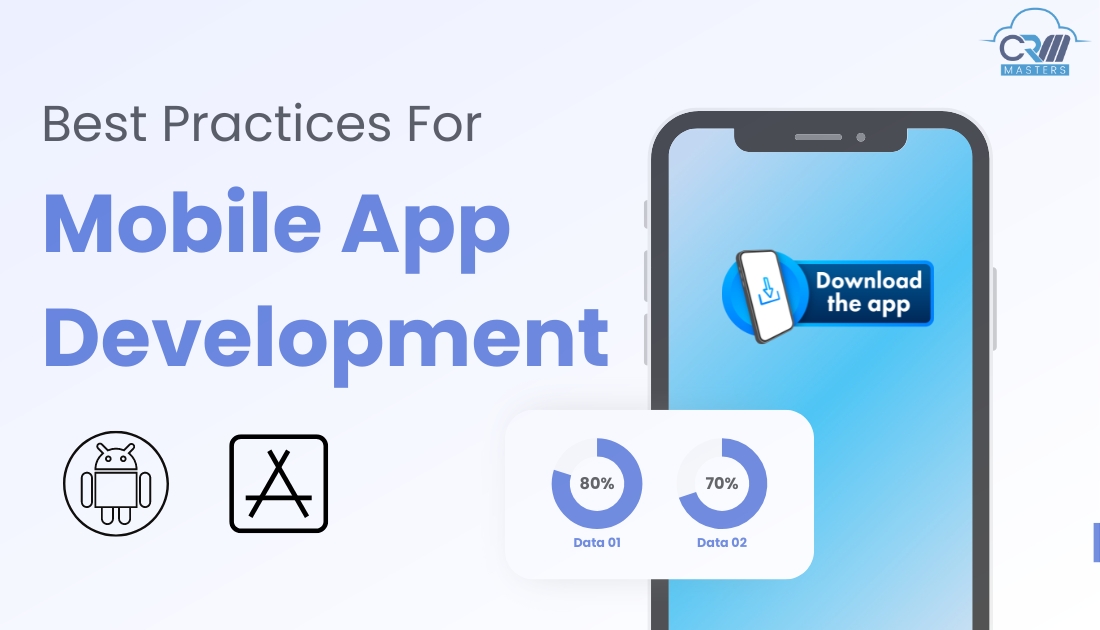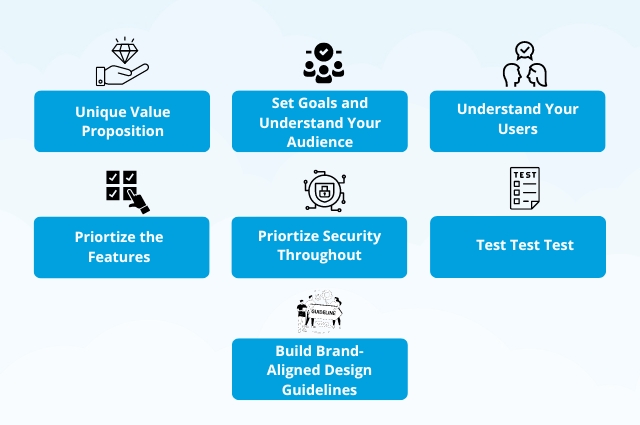
Best Practices For Mobile App Development
Mobile app development has become essential, and it is unavoidable that it has evolved rapidly in the past decade. The developers must consider many aspects to make their Mobile App a success.
You can use these best practices to make your app development easier and more successful.
What is Mobile App Development?
Mobile application development refers to the processes and procedures involved in creating software for smartphones and other handheld devices.
Mobile application development, like web application development, is based on more traditional software development. One significant difference is that mobile apps are frequently designed particularly to take advantage of the unique features of a particular mobile device.
Today, the two most popular smartphone platforms are iOS from Apple and Android from Google. Apple phones and tablets are packed with important software, including a full web.
Some of the Best Practices for Mobile Development

1) Unique Value Proposition
Before starting development, it’s essential to clearly define the unique value proposition of your app. What problem does it solve for users? What sets it apart from competitors? Understanding your app’s value proposition helps in shaping its features, design, and marketing strategies.
Conduct thorough market research and identify the key benefits and USPs of your app to effectively communicate its value to users.
2) Set Goals and Understand Your Audience
Setting goals is essential for guiding the development process effectively. These goals should be tailored to the specific needs and objectives of your app, whether it’s user growth, engagement, or brand awareness.
Moreover, gaining a deep understanding of your target audience is crucial. Analyze their behaviors, preferences, pain points, and motivations to tailor the app to their needs and expectations.
3) Understand Your Users
Before diving into development, invest time in understanding your target audience through user profiling. Identify the demographics, behaviors, and preferences of your users to design an app that meets their needs and preferences.
User-centric design ensures that your app is intuitive, user-friendly, and delivers a positive experience.
4) Prioritize the Features
While it may be tempting to pack your app with numerous features, prioritization is key to success. Focus on solving a specific problem or addressing a particular need for your target audience.
Avoid feature overload, which can overwhelm users and dilute the core value of your app. Start with essential features and iterate based on user feedback and performance metrics.
5) Prioritize Security Throughout
Security is paramount in mobile app development, considering the sensitive data and information often handled by apps. Implementing robust security measures from the outset helps mitigate risks and safeguard both the app and its users.
This includes encryption, authentication mechanisms, secure coding practices, and regular security audits. By prioritizing security throughout the development cycle, you can build trust with users and protect against potential threats.
6) Test Test Test
Thorough testing is essential to ensure the quality, performance, and reliability of the app across different devices, platforms, and scenarios. This includes functional testing to validate app features and functionalities, performance testing to assess speed, responsiveness, and scalability, and user acceptance testing to gather feedback from real users.
Additionally, security testing helps identify and address vulnerabilities to protect against potential security threats.
7) Build Brand-Aligned Design Guidelines
Consistent and cohesive design is key to creating a memorable and engaging user experience. Establishing design guidelines that align with your brand identity helps maintain visual consistency and reinforces brand recognition.
Consider factors such as color schemes, typography, iconography, and UI/UX patterns to create a cohesive and visually appealing app design that reflects your brand’s personality and values.
Also Read: Top 7 Mobile App Development Ideas with Flutter
Some Common Mistakes to Avoid in Mobile App Development
By avoiding these common mistakes in the mobile app development process, you can enhance the quality, performance, and user satisfaction of your app, ultimately leading to its success in the competitive app market.
1) Neglecting User Needs
Understanding the needs of your app users is crucial for its success. Without catering to user expectations, your app may fail to attract and retain users. Develop innovative features and services that exceed user expectations by conducting market research and competitor analysis.
2) Overcomplicating App Features
Mobile apps should be user-friendly, but some developers make the mistake of overcomplicating app features in an attempt to stand out. Avoid adding unnecessary complexity to your app, as it can confuse and frustrate users. Focus on delivering a seamless and straightforward user experience that prioritizes usability and functionality.
3) Developing for the Wrong Operating System
Choosing the wrong operating system (OS) can significantly impact your app’s performance and compatibility. Ensure that you develop your app for the latest version of the OS to take advantage of its features and functionalities. Avoid targeting outdated OS versions that may lack support for essential features, leading to compatibility issues and user dissatisfaction.
4) Poor Backend Infrastructure
The backend infrastructure of your app plays a crucial role in its performance and reliability. Apps with poorly designed or inadequate backends are prone to crashes, glitches, and functionality issues. Invest in robust backend infrastructure that can support the app’s features and scalability requirements. Avoid rushing the backend development process and prioritize stability and scalability.
5) Hiring the Wrong App Developer
App developers have a huge impact on the success of your app. Avoid the mistake of hiring inexperienced or unqualified developers, as it can result in app quality and performance.
Take the time to thoroughly evaluate app development companies based on their portfolio, client feedback, and experience. Ask relevant questions and discuss your project requirements in detail to ensure you choose the right app developer for your project.
Looking for the Best Mobile App Development Company?
We at CRM Masters have proven experience in mobile app development services across various verticals.
With our team of top-notch software developers, we understand your requirements and build a solution according to your needs.
Contact us now! Book a FREE consultation today.












